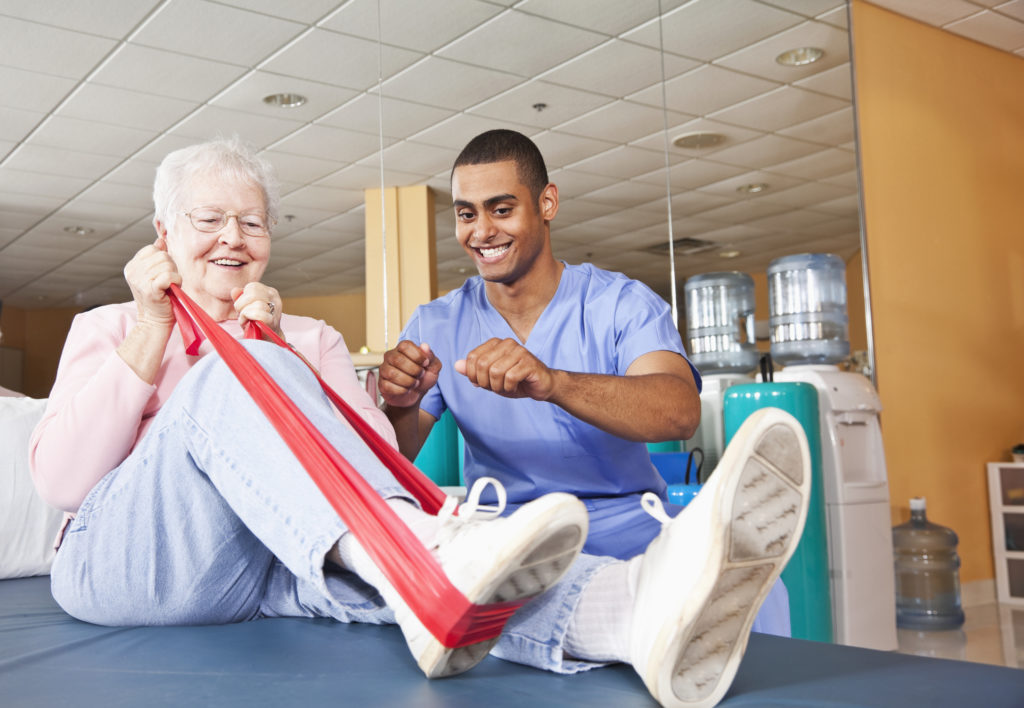Balance Problems Raise the Risk of Falls

At CPT, we’ve helped many clients recover from the effects of a fall. More than helping them recover, we help them improve their strength, balance, and other factors to help prevent more falls.
Unfortunately, falling is a big senior health issue. According to the Centers for Disease Control and Prevention, 25% of adults aged 65 and older fall every year, and many will suffer brain damage, a hip fracture or other broken bone – injuries that can be fatal, or so serious that a person never recovers their independence. And “Falls rates … are projected to rise as [the] older adult population is estimated to increase by 55% by 2060,” according to the National Council on Aging (NCOA).
September 20-24 is Falls Prevention Week, an annual event dedicated to raising awareness “about the impact of falls among older adults and offer practical falls prevention solutions,” according to the NCOA. In that spirit, we’d like to provide information about some of the most common factors in falls, which are mostly related to balance.
Vision changes
Age-related macular degeneration, cataracts, glaucoma and other vision problems not only make it more likely that we will trip over something because we can’t see it, but also reduce our sense of balance and orientation in space.
Inner ear problems
Our ears do more than hear. The vestibular system, important for our sense of position and balance, is located in the inner ear as well. Normal changes of aging, bacterial or viral infections, certain conditions such as Meniere’s disease and benign paroxysmal positional vertigo (BPPV), and even ear wax buildup can cause dizziness and loss of balance.
Changes to the blood vessels
Over time, our blood vessels lose their elasticity. When we change position, such as from sitting to standing, we can become dizzy and lightheaded and even pass out. The cause might be as simple as dehydration, or a more serious health problem such as diabetes, stroke, heart problems or Parkinson’s disease.
Numbness in legs and feet
Diseases such as diabetes, as well as some of the normal changes of aging, make it harder for our nerves to send messages to the brain about exactly where our feet and legs are, and about the surface we’re standing on – is it uneven? Slanted? Are we standing on the edge of a curb or stair?
Medication side effects
Alone or combined with other drugs, many of the medicines seniors take can cause dizziness. Blood pressure medications in particular can cause unsteadiness. Sedatives, sleep medications, some heart medications, antidepressants, pain medications and even some herbal products also can affect our sense of balance. Drinking alcohol often increases the effect.
This is only a partial list of conditions that can affect our sense of balance. Some causes of balance problems are treatable. In other cases, there are things we can do to cope with the problem and be safer. We encourage anyone who is experiencing these symptoms to talk to their doctor and find out how they can mitigate the effects – before a fall happens.
Source: IlluminAge AgeWise
![CPT Rehab [logo]](https://www.cptrehab.com/wp-content/themes/cpt-rehab/images/logo.png)